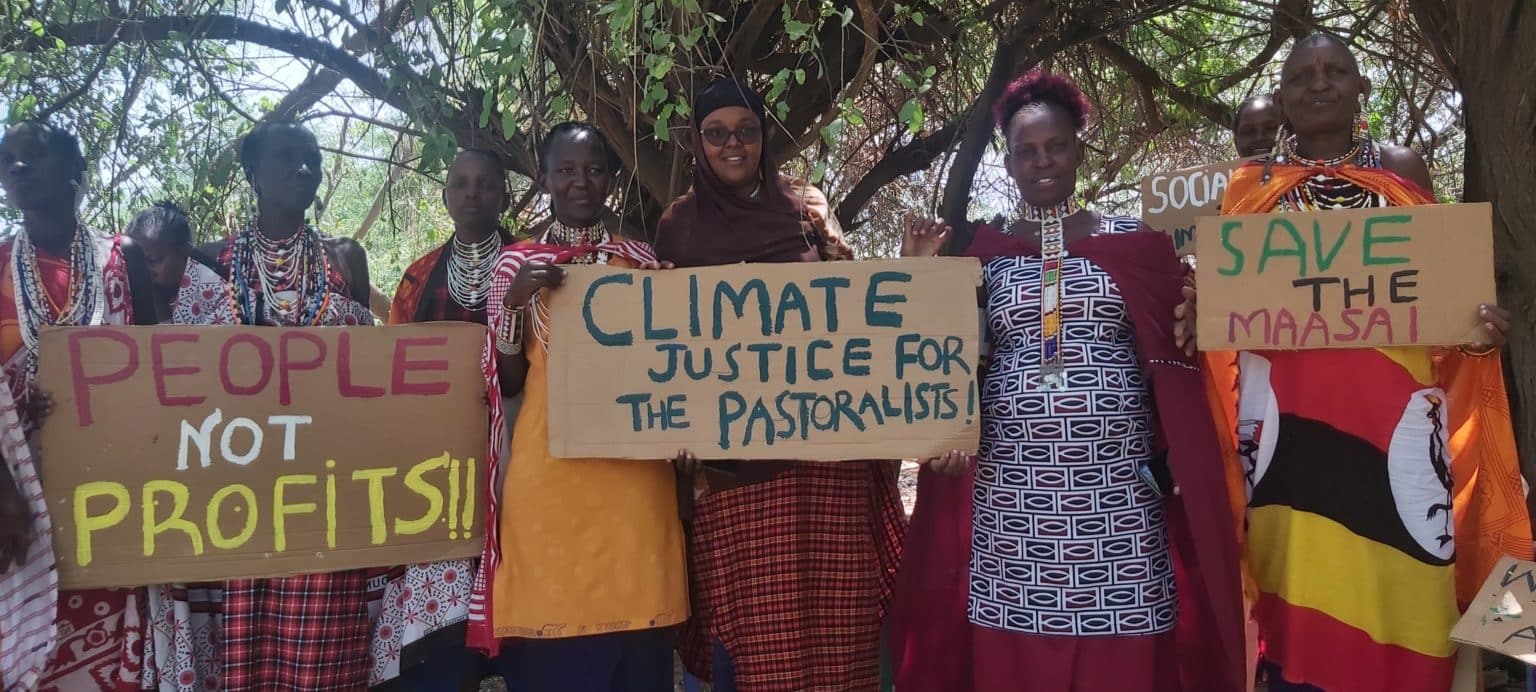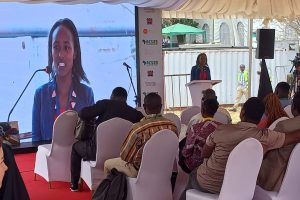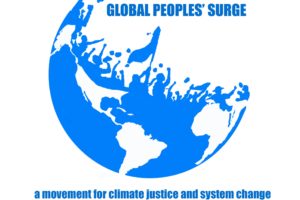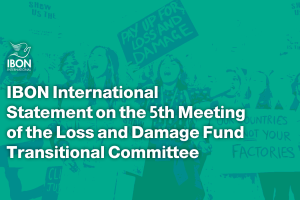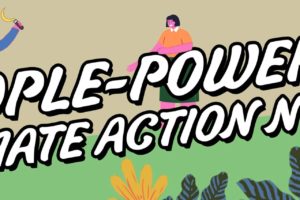IBON Africa Coordinator, Caroline Muturi, presented the following statement at the Final Round of Intergovernmental Consultation on Nature-based Solutions (NbS), held from 9 to 13 October 2023. Caroline Muturi represented the Major Groups and Stakeholders (MGS) – which include Women, Children and Youth, Farmers, Indigenous Peoples, NGOs, Science and Technology and Regional Major Groups.
I am Carolina Muturi from IBON International Foundation, presenting a joint statement on behalf of the Major Groups and Stakeholders who are being represented at the Final Intergovernmental Consultations on nature-based solutions (NbS).
We are highly concerned about the potential risks associated with the implementation of NbS projects and their failure to generate positive effects on frontline communities. As research shows, the vast majority of NbS projects fail to yield tangible benefits for the environment, Indigenous Peoples, local communities, and women in all their unique diversity. This unsettling reality needs to be addressed, as these failures are often exploited as greenwashing tactics by destructive corporations, enabling them to evade their rightful environmental obligations. It is vital that we refrain from promoting offset projects that result in the dispossession of Indigenous lands.
Resources allocated to the implementation of NbS should instead be channeled towards real solutions that genuinely protect, conserve, restore, and sustainably use and manage ecosystems, without opening the doors to promote harmful practices and dangerous distractions for the decarbonization of our economies. At the same time, we have to ensure effective and inclusive participation of local communities and marginalized peoples, including Indigenous Peoples, women, children and youth, with application of their traditional knowledge and intergenerational perspectives.
The integrity of ecosystems and the essential contributions these provide to the communities who depend on them remain a key priority for us; these cannot be traded or replaced once degraded. Our lands and ways of life cannot be subject to commodification. These territories are for our children to inherit.
At a micro level, local communities need autonomy from the broader global and regional approaches, by seeking Indigenous-led strategies for consultation and consent, which align with holistic, synergistic foundations.
We advocate for developed countries to acknowledge and address their historical impacts, ensuring they provide essential financial resources as a form of restitution for resource extraction, environmental damage, and pollution. This should prioritize local accessibility to empower front-line workers, women in all their diversity, grassroots organizations, and community members who possess an in-depth understanding of their unique contexts and needs. This approach is essential to grant communities the autonomy to govern their community-based ecosystem management, thereby reinstating their land rights and access to forests. By adopting this form of governance, community members regain the power to manage ecosystems independently, free from external influences driven by profit-oriented entities.
Let us proactively prevent further failures and usher in a new era of justice, one that serves the well-being of both humanity and the planet. Rather than enabling “solutions” which allow corporations to maintain the appearance of ‘balanced’ carbon ledgers while continuing to burn fossil fuels, we recommend to mobilise support for people-powered climate actions and solutions – those developed and owned by grassroots communities in the context of their struggle against corporate encroachment on their land, water, and resources. These solutions include the promotion of agroecological farming systems and food sovereignty, support for community-based renewable energy and community conservation of biodiverse ecosystems, and securing land and tenure rights for Indigenous Peoples, women in all their diversity and local communities. Thank you. #
